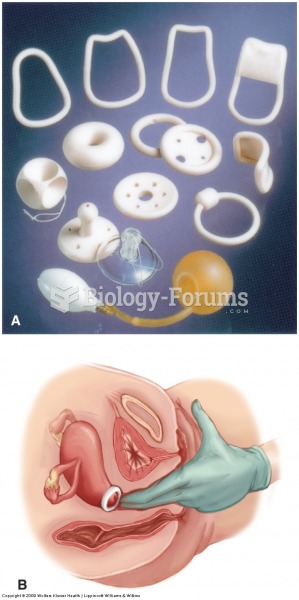|
|
|
Carbamazepine can interfere with the results of home pregnancy tests. If you are taking carbamazepine, do not try to test for pregnancy at home.
Amphetamine poisoning can cause intravascular coagulation, circulatory collapse, rhabdomyolysis, ischemic colitis, acute psychosis, hyperthermia, respiratory distress syndrome, and pericarditis.
The U.S. Pharmacopeia Medication Errors Reporting Program states that approximately 50% of all medication errors involve insulin.
No drugs are available to relieve parathyroid disease. Parathyroid disease is caused by a parathyroid tumor, and it needs to be removed by surgery.
Throughout history, plants containing cardiac steroids have been used as heart drugs and as poisons (e.g., in arrows used in combat), emetics, and diuretics.
 Examples of pessaries. (A) Various shapes and sizes of pessaries available. (B) Insertion of one typ
Examples of pessaries. (A) Various shapes and sizes of pessaries available. (B) Insertion of one typ
 The cranium of a young infant changes dramatically in shape with age. Initially the child has severa
The cranium of a young infant changes dramatically in shape with age. Initially the child has severa





